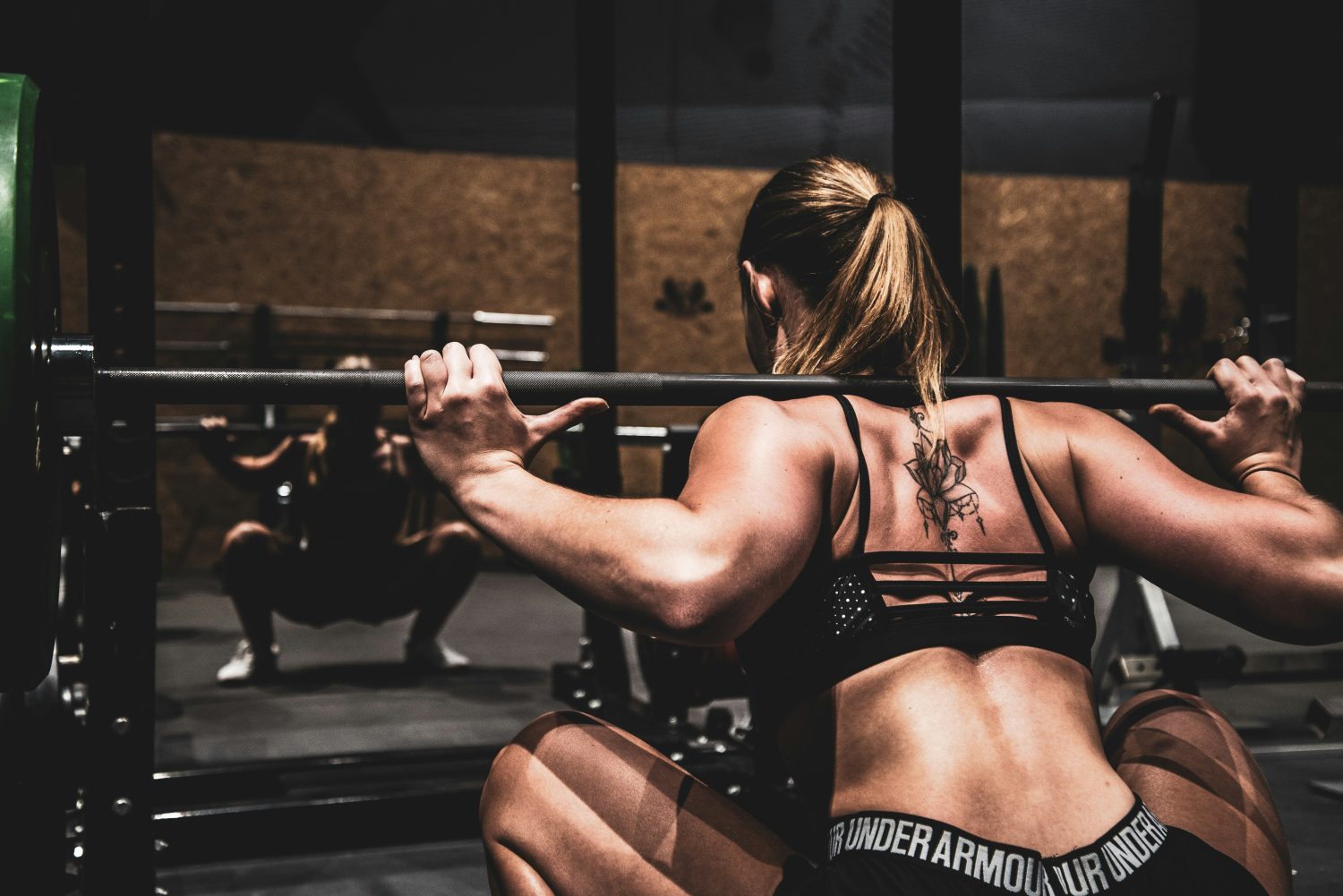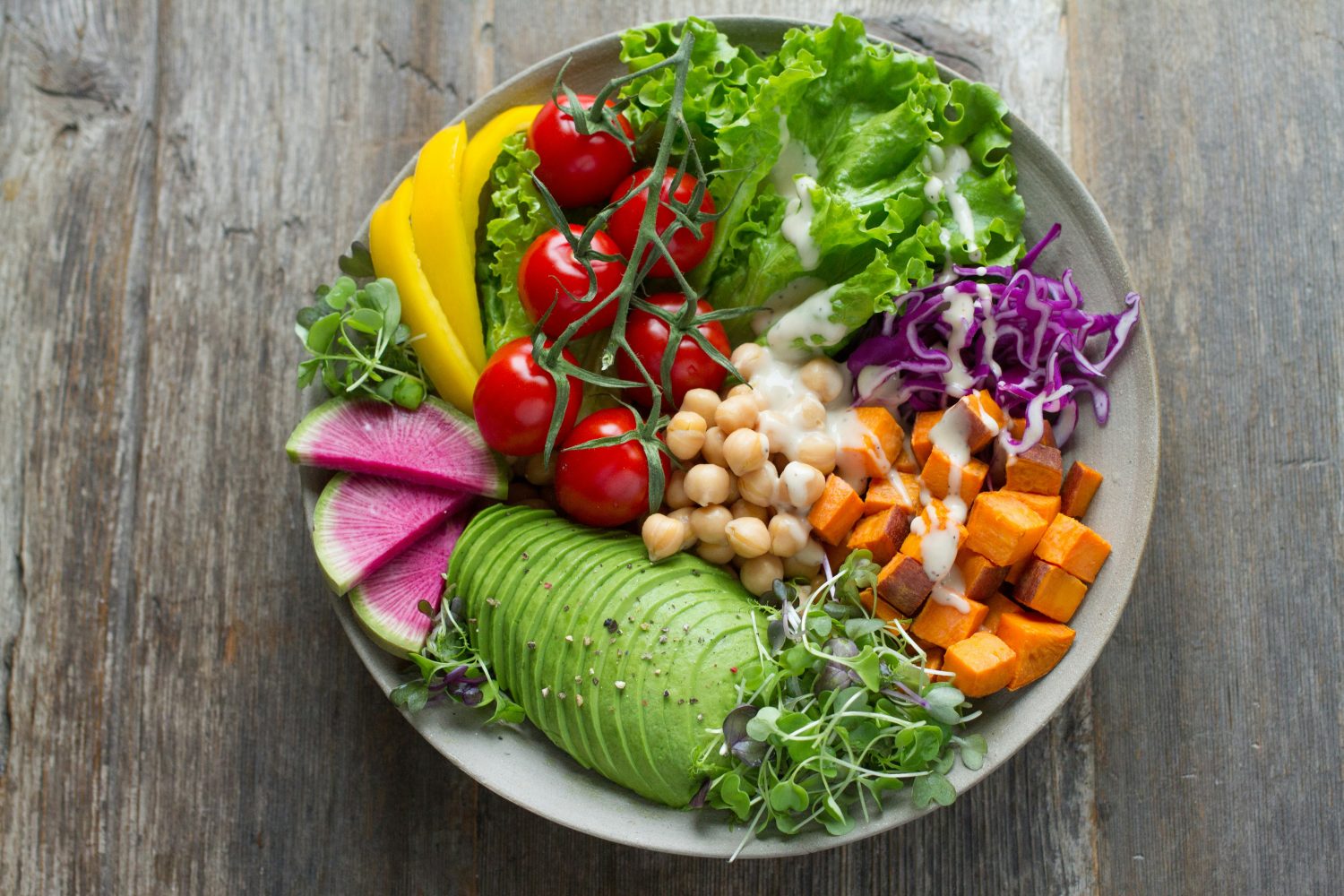Eating before training – yes or no?
The right nutrition before training plays a decisive role in athletic performance and general well-being. It provides the necessary energy, supports endurance and promotes regeneration. A balanced meal or a suitable snack before exercise can make the difference between a successful workout and premature fatigue. In this article, you will find out which nutrients are particularly important, when you should eat and which foods are best suited as a pre-workout meal.
Basics of pre-workout nutrition
Important nutrients: carbohydrates, proteins, fats
- Carbohydrates:
- Function: Main source of energy for training. They help to replenish the glycogen stores in the muscles and liver.
- Examples: Wholemeal products, fruit, vegetables, oatmeal.
- Proteins:
- Function: Support muscle building and muscle repair. They contribute to the maintenance of muscle mass.
- Examples: Chicken breast, fish, eggs, yoghurt, vegetable protein sources such as beans and lentils.
- Fats:
- Function: Long-term source of energy. Important for the absorption of fat-soluble vitamins and general cell function.
- Examples: Avocado, nuts, seeds, olive oil.
Hydration and its importance
- Fluid intake: Adequate fluid intake is crucial to regulate body temperature, support metabolism and maintain performance.
- Electrolytes: During intensive or long training sessions, electrolytes such as sodium, potassium and magnesium can help to stabilise fluid balance and muscle function.
- Recommendation: Drink water regularly before, during and after training. During intensive training sessions, sports drinks can also be useful to replenish electrolytes.
A balanced diet before training, which includes all the important nutrients and sufficient hydration, lays the foundation for effective and powerful training.
Timing of food intake
When should you eat?
Timing your pre-workout food intake is crucial to ensure your body has the energy it needs without feeling full or sluggish. The ideal amount of time to eat depends on the type and amount of food.
Meals 2-3 hours before training
- Complete meals: A larger meal should be consumed approximately 2-3 hours before training. This meal should contain a balanced mix of carbohydrates, proteins and fats to ensure long-term energy supply.
- Examples:
- Chicken with quinoa and vegetables
- Wholemeal pasta with tomato sauce and lean meat
- A large vegetable salad with nuts and seeds and a protein source such as cottage cheese or beans
Snacks 30-60 minutes before training
- Light snacks: Smaller snacks can be eaten 30-60 minutes before training. These should consist mainly of easily digestible carbohydrates to provide quick energy without weighing down the stomach.
- Examples:
- Banana or apple with a spoonful of nut butter
- A small yoghurt with honey
- A handful of dried fruit and nuts
- Energy bars especially for athletes
The right timing and choice of food before training can significantly improve performance and facilitate recovery after training.

Optimal foods and meals
Examples of pre-workout meals
A complete meal 2-3 hours before training should contain a balanced combination of carbohydrates, proteins and fats:
- Chicken with sweet potatoes and vegetables:
- Chicken: Lean protein source
- Sweet potatoes: Complex carbohydrates for sustained energy
- Vegetables: Vitamins and minerals
- Quinoa bowl with lentils and vegetables:
- Quinoa: complex carbohydrates and vegetable protein
- Lentils: Protein and fibre
- Vegetables: Rich in nutrients
- Wholemeal pasta with turkey strips and tomato sauce:
- Wholemeal pasta: Long-lasting energy
- Turkey strips: Lean source of protein
- Tomato sauce: Flavour and additional nutrients
Examples of light pre-workout snacks
Light snacks 30-60 minutes before training should consist mainly of carbohydrates to provide quick energy:
- Banana with almond butter:
- Banana: Fast energy from carbohydrates
- Almond butter: Small amount of healthy fats and proteins
- Yoghurt with honey:
- Yoghurt: Source of protein
- Honey: Fast carbohydrates
- Apple slices with peanut butter:
- Apple: Carbohydrates and fibre
- Peanut butter: Healthy fats and proteins
- Energy bars:
- Especially for athletes: combination of carbohydrates and proteins
By choosing the right foods and snacks before training, you can ensure that your body is optimally supplied with energy to achieve the best performance.
Nutrition strategies for different workouts
Endurance sports
Endurance sports such as running, cycling or swimming require a high and continuous energy intake to maintain performance.
- Before training: carbohydrate-rich meals such as wholemeal products, oatmeal or fruit.
- During training: Snacks such as bananas, energy bars or diluted fruit juices.
- After training: Combination of carbohydrates and proteins to replenish glycogen stores and muscle regeneration, such as quark with honey and berries.
Strength training and bodybuilding
In strength training and bodybuilding, the focus is on muscle building and regeneration, which requires a protein-rich diet.
- Before training: combination of proteins and complex carbohydrates, e.g. wholemeal bread with cottage cheese.
- During training: Hydration with water or electrolyte drinks.
- After training: protein-rich meals such as chicken with quinoa or protein shakes, combined with carbohydrates to support muscle building.
Combination training
Combination training, which includes both endurance and strength, requires a balanced diet that covers both needs.
- Before training: Meals with balanced carbohydrates and proteins, such as a wholemeal wrap with chicken and vegetables.
- During training: Fast energy sources such as fruit juices or energy bars.
- After training: A combination of proteins and carbohydrates, such as a protein shake with a banana or a bowl of lentils, rice and vegetables.
By adapting their diet to the type of training, athletes can optimise their performance and promote recovery.
Common myths
Clarification of common misconceptions
- Myth: Carbohydrates make you fat:
- Clarification: Carbohydrates are an important source of energy, especially before training. It depends on the type and amount of carbohydrates.
- Myth: You have to eat immediately after training:
- Clarification: Whilst it is important to eat after training, there is a window of up to two hours in which the body can optimally absorb nutrients.
- Myth: Protein is only important for bodybuilders:
- Clarification: Protein is important for all athletes as it aids muscle repair and recovery.
Scientifically sound advice
- Balanced diet:
- A balanced mix of carbohydrates, proteins and fats is crucial for optimal performance and recovery.
- Individualisation:
- Nutrition plans should be customised to the needs of the athlete to achieve the best results.
- Hydration:
- Drinking regularly is important to maintain performance and avoid dehydration.
By dispelling myths and applying science-based advice, athletes can optimise their nutrition and avoid misconceptions that could affect their performance.

Tips and recommendations
Customise your diet
- Consider personal needs:
- Consider age, gender, weight, activity level and training goals.
- Test different foods and meals to find out what works best for you.
- Keep a food log:
- Keep a diary to document your diet, training performance and body responses.
- Analyse the data to continuously optimise your nutrition strategy.
Tips for avoiding stomach problems
- Choose easily digestible foods:
- Avoid fatty, high-fibre and highly seasoned foods before training.
- Favour easily digestible carbohydrates and moderate amounts of protein.
- Adjust portion size:
- Eat smaller meals or snacks to avoid bloating and stomach problems.
- Make sure that your last meal is at least 2-3 hours before training.
- Pay attention to hydration:
- Drink enough water, but avoid excessive drinking just before training.
- Drinks containing electrolytes can help to maintain the fluid balance.
By customising your diet and taking some basic precautions, you can optimise your athletic performance and avoid stomach problems.
Conclusion
Proper pre-workout nutrition is crucial for optimal athletic performance and recovery. A balanced mix of carbohydrates, proteins and fats, adapted to individual needs and timing, provides the necessary energy and supports muscle recovery. By understanding and applying science-based advice and avoiding common myths, athletes can effectively organise their diet. The individual adaptation and focus on easily digestible foods also help to avoid stomach problems and optimise training.